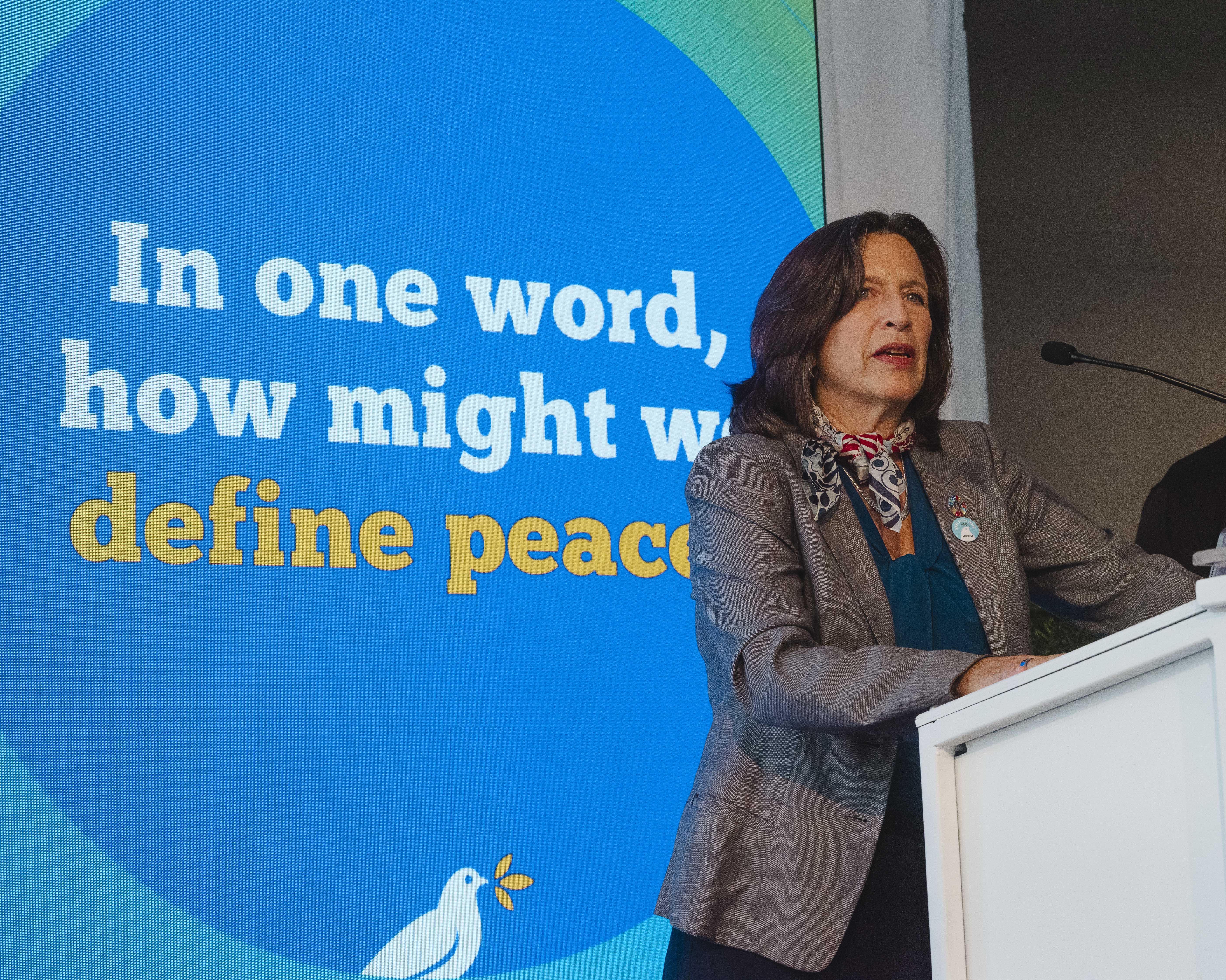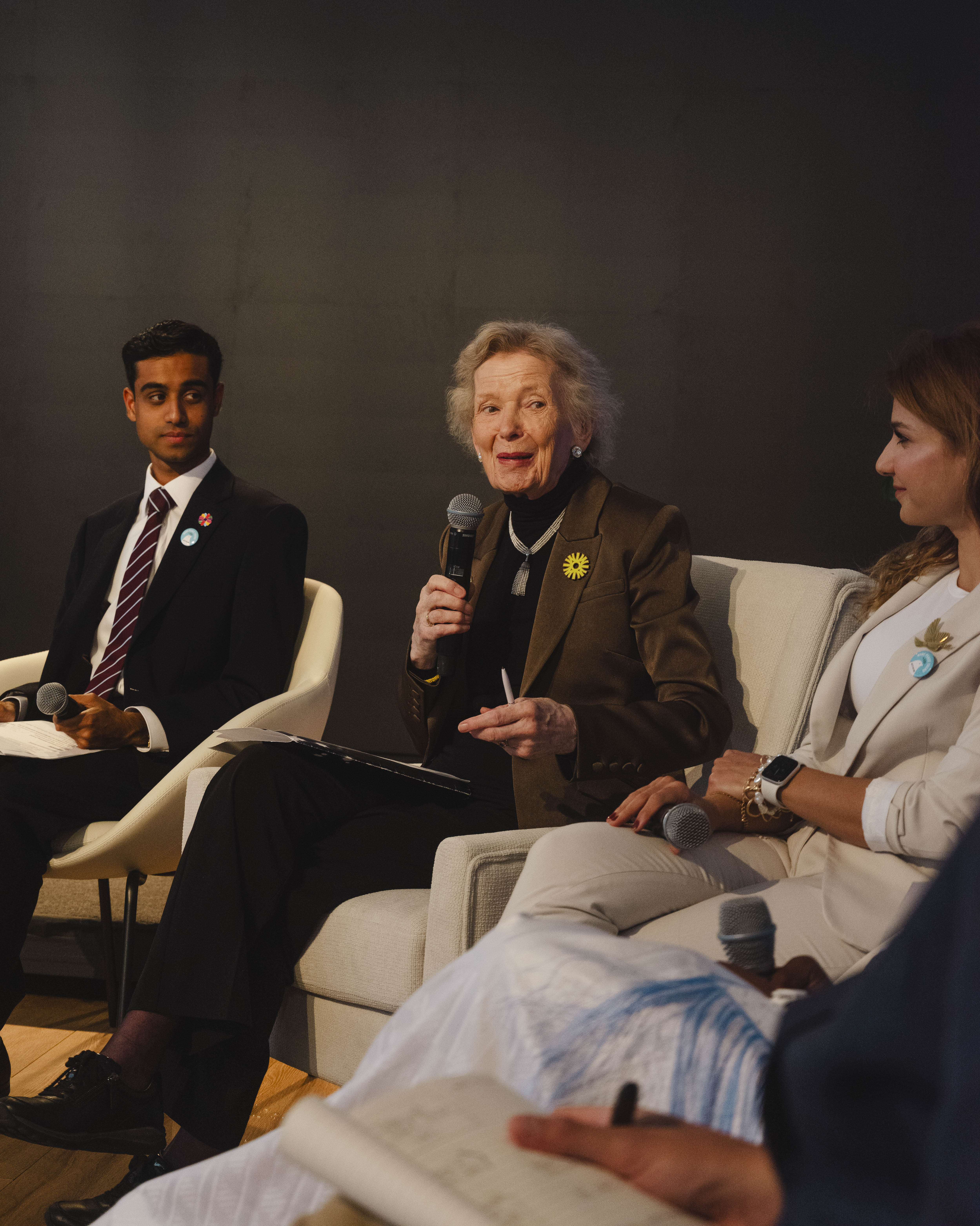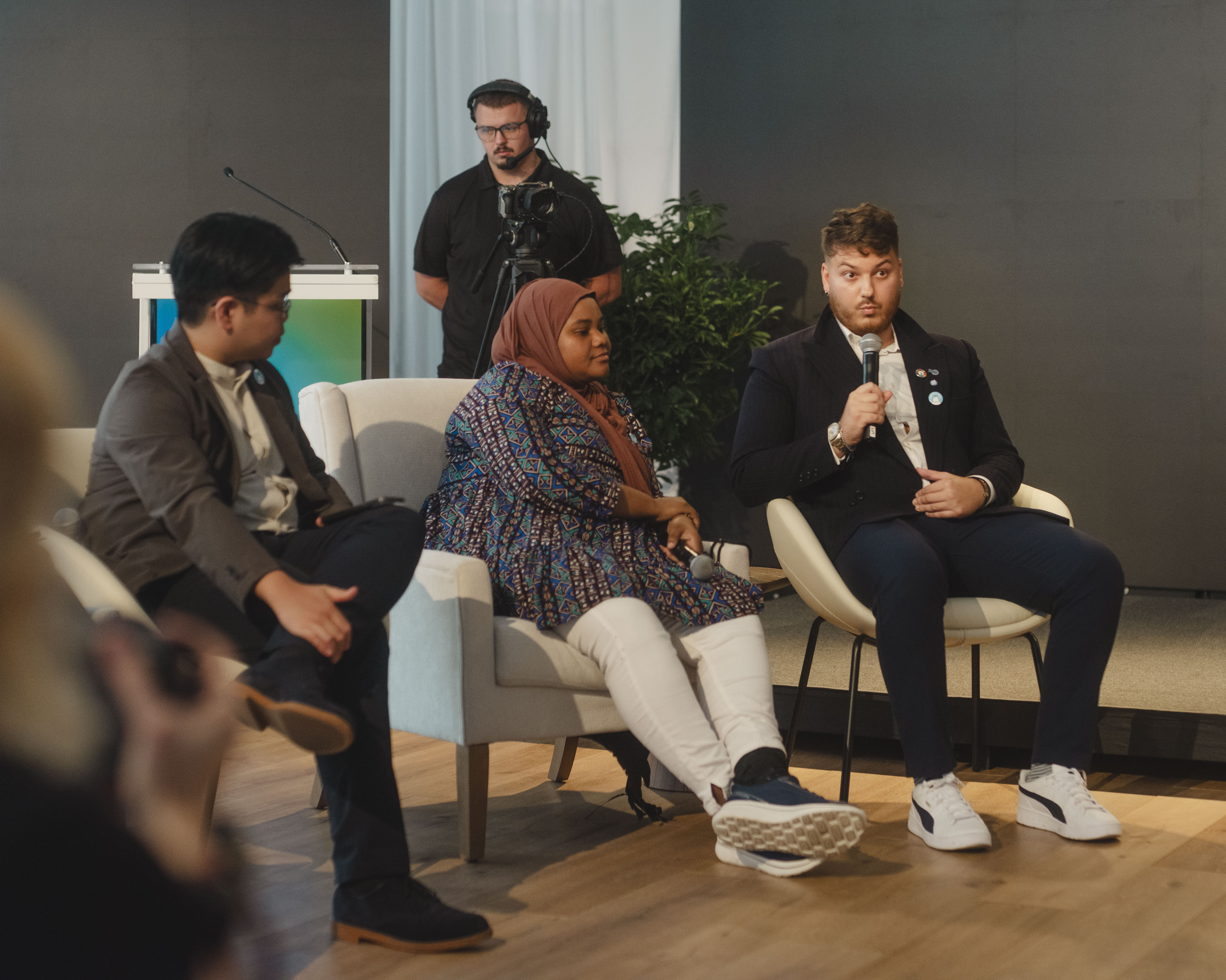A movement for peace driven by the power and energy of youth
The United Nations launches a year-long advocacy and mobilization campaign on the International Day of Peace
From grassroots action to global impact, the United Nations new campaign on youth, peace and security – Hear Us. Act Now for a Peaceful World - will harness the power of youth to surface urgent, often-overlooked solutions to today’s escalating global challenges.
Against the backdrop of a world, which is increasingly polarized and witnessing rising conflict, division, and erosion of trust in institutions, the need for inclusive youth-led dialogue and solutions has never been more urgent.
“Our hopes for a better world lie with young people," said UN Under-Secretary-General for Global Communications Melissa Fleming at the launch of the campaign on the International Day of Peace (21 September 2025).
Gathered at the launch to take part in the campaign’s inaugural Peace Circle were five youth leaders from around the world as well as renowned speakers such as Mary Robinson, the former President of Ireland and a member of The Elders, and the UN Assistant Secretary-General for Youth Affairs, Felipe Paullier.



UNGA hashtag at UNHQ (left/top), Melissa Fleming launches the campaign (centre/middle) and audience (right/bottom). Credit: Jake Corcoran
Galvanizing youth voices for peace
“Peace is not an abstract concept for young people around the world, it is the foundation for their lives now and their futures to come," said Fleming. “This campaign will elevate youth-led solutions and shine a light on the voices of young leaders who are working for peace every day."
Galvanizing youth voices at the heart of the campaign are Peace Circles — inclusive intergenerational dialogues, coalition building and solutions facilitated by young people and allies across the globe. Throughout the year-long campaign, the circles will create spaces for action-oriented solutions, co-creation, peer exchanges and storytelling around peace.
“We have to change invitation to become co-creation," said the UN Global Advocate for Peace, Maryam Bukar Hassan, talking about the importance of creating spaces where youth are not just present but lead decision-making. “And institutions have to be held accountable to follow through on youth-led initiatives."
“It is very important that you come to the table with the initiative and desire to engage, to try and build a bridge," said Max Genin, a human rights lawyer and a Youth Advisor at UN Human Rights, talking about ways to open spaces for different political views to bridge divides.
From prevention to disarmament to peacebuilding, climate security and gender equality, Peace Circles around the world will address the urgent need to invest in people-centered solutions and shape a more peaceful, just and sustainable future — guided by and with youth.
“In order to be together, we need to have cohesion, respect, love, and equality,” said Nagla Abbas, a Youth Advocate and Feminist Leader from Tanzania, talking about ways to overcome stereotypes or systems that exclude certain youth such as young women and girls as well as LGBTQIA+ and indigenous youth.



Ishaan Shah (left/top), Maryan Bukar Hassan (centre/middle) and Melissa Fleming (right/bottom) speak. Credit: Jake Corcoran
Peace as a daily demand, not a distant ideal
Young people are leading the call for peace — not as a distant ideal, but as a daily demand. Fifty percent of the world's population is under 30. They are peacebuilders, mediators, educators, peacekeepers, activists, volunteers, and innovators. They are the generation that has the greatest stake in our common future. Yet too often, they are excluded from the spaces where decisions are made, and solutions are shaped.
“Young people are always pushed to the frontlines of conflict, but they are not the ones taking the decisions in the closed rooms," said Felipe Paullier. “There is a need for youth-leadership because we need to change things."
Today, only 2.8 per cent of parliamentarians are aged 30 or under. Over 260 million young people do not have employment, education or training, two-thirds of them women. Studies reveal a profound "trust gap": young people are invited to the table, but their voices are consistently ignored. The Hear Us campaign is a direct response, aiming to shift that paradigm.
A tangible impact of the Pact for the Future, the campaign is led by the UN Department of Global Communications and advocates for three catalytic actions that young people have called for repeatedly: inclusion, investment and partnership with youth to build peace.
“Hope is action. Hope is doing. Hope is combining, collaborating and making things happen," said Mary Robinson. “We need to work together to flesh out real youth-led initiatives that will be central to our work."
For today’s generation, peace is not just the absence of war - it is a daily, tangible reality built through empathy, justice, and the courage to find common ground - through conversations and listening. Peace is also about investing in people’s futures and giving them opportunities to thrive - through making education more accessible, fighting poverty and hunger, and ensuring human rights, justice, and dignity for everyone.
“If we are not able to be strong inside, we will not be able to give power and strength to the people who are close to us, to our communities, and to our countries," said Jin Dawod, the founder of Peace Therapy, who Nansen Refugee Award for Europe in 2024.
Speaking at the inaugural Peace Circle was also Yuta Takahashi, the Representative Director of Association Katawara and a disarmament advocate, who works with Japan’s hibakushas or people who survived the nuclear attacks in Hiroshima and Nagasaki in 1945.
“After hearing the testimonies of hibakusha, we become the storytellers and we can change our world," he said when asked about the importance of intergenerational dialogue and co-designing peace solutions with the elders in our communities.
Led by the UN Department of Global Communications, the campaign will be rolled out in partnership with the UN Youth, Peace and Security Secretariat, comprising the UN Youth Office, the UN Department of Political and Peacebuilding Affairs, and the UN Population Fund, in collaboration with the UN System.
Coming ahead of the 10th anniversary of the landmark UN Security Council Resolution 2250 on Youth, Peace and Security, the year-long public advocacy and mobilization campaign will contribute to the 2026 Secretary-General’s Report on youth’s positive contribution to peace.



Mary Robinson (left/top), Max Genin (centre/middle) and group shot (right/bottom). Credit: Jake Corcoran
